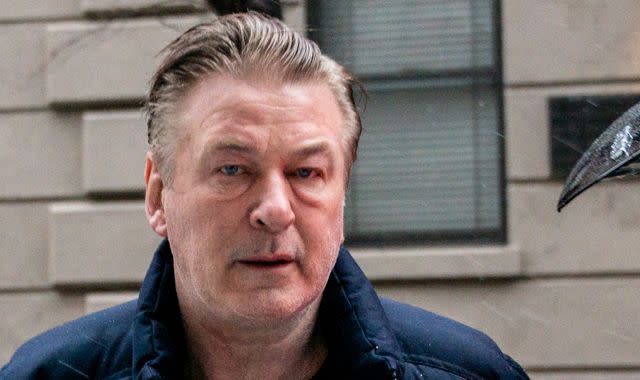Alec Baldwin faces trial over fatal Rust shooting after defence bid rejected

US actor Alec Baldwin is facing trial for involuntary manslaughter over the fatal shooting of a cinematographer on a film set after a judge rejected a bid to throw the case out.
Judge Mary Marlowe Sommer sided with prosecutors in denying a request to dismiss the charge on the grounds key evidence was damaged by the FBI during forensic testing.
Baldwin's legal team had argued this prevented their own testing of the gun that fired the bullet which killed Halyna Hutchins during the filming of the Western movie Rust in October 2021.
They had wanted to examine the weapon for possible modifications or problems that might clear the actor and producer.
The ruling in New Mexico paves the way for the prosecutors to bring the case to trial.
Hutchins, 42, was shot after Baldwin pointed a gun at her as she set up a camera during a rehearsal on set near Santa Fe.
The 30 Rock star has denied responsibility for Hutchins' death, saying the gun went off on its own after he pointed it at the cinematographer and cocked it.
He denies pulling the trigger - a claim that has become central to the case.
The FBI conducted an accidental discharge test on the gun by striking it from several angles with a mallet, eventually breaking the gun.
Prosecutors plan to present evidence at trial that they say shows the firearm "could not have fired absent a pull of the trigger" and was working properly before the shooting.
Read more on Sky News:
Moment man arrested over Holly Willoughby 'kidnap plot'
Michael Jackson '$500m in debt' when he died
It is the second time Baldwin has been charged over Hutchins' death.
Prosecutors dropped an earlier charge, then refiled it after a new analysis of the gun that Baldwin pointed at Hutchins.
Rust armourer Hannah Gutierrez, who mistakenly loaded a live round into the revolver, was found guilty of involuntary manslaughter and sentenced in April to 18 months in prison, the same term Baldwin would face if convicted.
She is appealing the jury's verdict.
Judge Marlowe Sommer said destruction of internal components of the firearm "is not highly prejudicial" to a fair trial.
While Baldwin "contends that an unaltered firearm is critical to his case, other evidence concerning the functionality of the firearm on October 21 2021 weighs against the defendant's assertions," she said.


